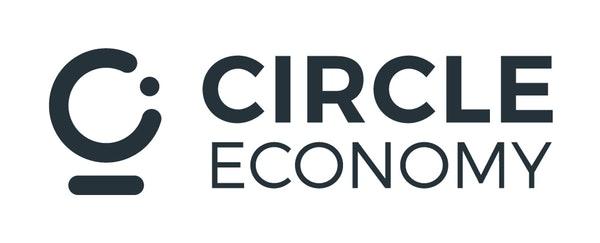Circle Economy
Updated on 19.09.2023
Circle Economy is a not-for-profit, impact organisation that connects and empowers a global community to create the conditions for systemic transformation. It works with businesses, cities, and governments to identify opportunities to make the transition to the circular economy (CE) and provide a powerful combination of practical and scalable solutions to make these opportunities into a reality.

Activities on circular economy
The assistance is focused on cities, businesses and nations. Circle Economy has nine focus areas:
- circular jobs initiative
- finance
- metrics
- data
- digital
- textiles
- built environment
- capital equipment
- design for circularity
The assistance for cities is delivered mainly through the Circle City Scan, which aims to guide cities on their journey to make their linear economies circular, by using data to inform multi-stakeholder decision making and accelerate the transition to CE. Also, it elaborates on Circularity Gap Reports for countries, which provide insight into the best interventions that can boost circularity at a national level and the tools that can be used to monitor the progress.
In addition, businesses are assisted through the Circle City Scan Tool approach that helps align sustainability targets with commercial targets by pinpointing the opportunities for improving product design, service design and business model innovation.
Target territory
Circle Economy has supported over 30 cities around the world in creating CE strategies.
Countries
Circle Economy currently has worked with more than 20 countries, a large number of which are part of the European Union.
Sectors
- Metrics and indicators; data and knowledge creation; digital tools; jobs; built environment.
- Business strategies; finance; agrifood.
- Textiles.
Key services provided for the circular economy
- Circularity scans for cities. This includes:
- city baseline analysis
- material flow analysis
- development of a circular strategy
- circular city action planning
- local business accelerator. - Circularity scans for businesses. This includes:
- strategies to capture the benefits of CE
- metrics to guide innovation
- insights to improve the business case
- tools to convince core stakeholders. - Circularity scans for nations. This includes:
- benchmarking a nation’s circularity using the Circularity Gap Report methodology;
- evaluating the impact of CE interventions on skills requirements and jobs within national and regional labour markets;
- developing evidence-based sectoral roadmaps that highlight main leverage points to accelerate the transition through key industrial value chains
- building decision-maker’s capacity to adopt and implement circular strategies.
List of relevant material
- Circularity Gap Report
- Resources & Publications
- Knowledge Hub: the largest online repository of over 4 600 case studies from more than 100 countries on circular projects, policies and solutions, with over 90 000 users.
- Circular Jobs Monitor: an online tool to map jobs that drive circular activities globally, examining material use and identifying which sectors will be affected by the transition to a CE.
- Ganbatte: an online platform delivering data-driven, circular insights, metrics, solutions, and actionable case studies from around the world.
- Circularity Academy: a gamified e-learning platform, to build awareness, knowledge and skills for a CE.
- Circular Assessment Tool: an online tool that has helped over 200 organisations with practical and scalable best practices on the definition and potential of the CE, and empowers them to adopt CE strategies.
Description of future collaboration with CCRI-CSO
- Bilateral cooperation between the Circular Cities and Regions Initiative (CCRI) and Circle Economy that involves no overlapping in activities.
- The CCRI will help Circle Economy in moving away from a project basis, towards a systemic basis, making Circle Economy’s methodology much more effective and efficient, in order to accelerate the transition to a CE.
- Share lessons learned and methodology on support to CSS.
- Exchange of information on methodologies and technical knowledge on CE at local and regional scales.
Additional information
- Circle Economy is a project partner of the European Investment Bank’s (EIB) Circular City Centre (C3).
- Circle Economy is a project lead for the Circle Lab for Cities Programme in partnership with ICLEI – Local Governments for Sustainability, Metabolic, and the Ellen MacArthur Foundation.
- Circle Economy is an accredited organisation and project partner for the development of city typologies for the Circular Jobs Monitor under the United Nations Environment Programme (UNEP).
- Circle Economy is project partner of two consortiums under the EU funded CCRI – PDA (project development assistance) programme:
- CircularInvest; with META, INOVA+ and ICLEI – Local Governments for Sustainability;
- CCRI – DEFINITE; with ICLEI – Local Governments for Sustainability, Bankers without Boundaries, National Technical University of Athens, and the City of Ghent.

large 500 000-200 000, medium 200 000-50 000, and small cities 50 000-5 000



